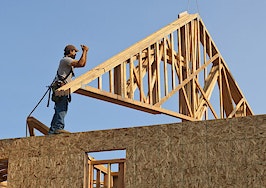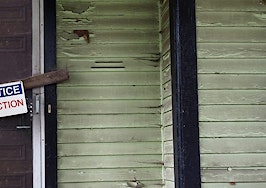- A study shows that after the recession, millennials with a higher level of education are more likely to be homeowners.
- The role of parental homeownership is less of a deciding factor in millennial homeownership.
Just how big an impact did the recession have on young adult homeownership? In 2007, 53.5 percent of people aged 20-49 owned homes. By 2013, that number was down to 43.9 percent. Of those aged 25-34, 45.5 percent owned homes in 2007, but by 2013, just 31 percent were homeowners.
What has been termed the “Great Recession” changed how many people thought about homeownership, and trend watchers have wondered what exactly is keeping millennials out of the housing market as they mature.
Is it student loans, job insecurity, changing tastes, underemployment, a lack of confidence or something else?
A recent study showed that more millennials live at home with their parents now than they have in decades. Even as the economy has recovered, young-adult homeownership has not risen with it. In hot markets, a lot of this has to do with the paucity of affordable starter homes available, but this may not be the only factors at play.
A new report sponsored by Fannie Mae and conducted by researchers at the University of Southern California looks at a variety of factors, exploring the effects of young adults’ race, education, income and wealth on homeownership attainment in the pre- and post-recession periods.
The research was done to see not just how people’s finances have changed but also what other factors may have played a role and if there was a difference between life before and after the recession.
As is to be expected, income, wealth and family status combined with the local housing conditions play a strong role in whether or not a young adult is more likely to obtain homeownership. Those are societal constants.
Married households and those with children present are substantially more likely to be homeowners in both the pre- and post-recession time periods, which also makes sense.
However the study did point out two key changes in the two periods analyzed: the role of education and the relevance of parental homeownership.
The education factor
The study found that education was not associated with homeownership before the Great Recession but is positively associated with homeownership in the post-recession period.
Having a bachelor’s degree is associated with an increased likelihood of homeownership of 9 percentage points in the post-recession period, but the association is about half as large and only statistically significant at the 10 percent level in the pre-recession period.
The authors of the report have some interesting theories as to why this might be the case:
- It could be that education represents a deeper level of security in a post-recession landscape, offering a level of perceived protection during inevitable economic downturns.
- It may also have to do with lender responses to a potential borrower’s educational attainment and viability as a credit risk.
- It could also be that higher education also has a relationship with stronger financial literacy and a better understanding of the homebuying and mortgage lending processes, which might have become increasingly important in the depressed home sales market and tight credit environment of the post-recession period.
Another factor that may correlate with education is parental economic resources. Those who had parental support in their education may be more likely have assistance with the downpayment.
The writers of the report indicated that the role of education is something they wish to do increasing research on to determine the relationship between education and homeownership.
The parental effect
The study found that the relative cost of owning compared to renting (value-to-rent ratio) is negatively associated with the likelihood of homeownership.
If there are more owners in the area, millennials are more likely to own as well.
There was no association found between children’s homeownership and the prevailing rate in the area where their parents live. In the pre-recession period, parental homeownership is positively associated with their children’s likelihood of homeownership, but that’s not the case after the recession.
Could it be that after the recession, parents who were themselves homeowners and saw their equity diminish were less likely to encourage their young-adult children to be homeowners?
It could also be that during the housing boom, parents may have been more likely to use their accumulated home equity in this period to assist their children’s purchases.
The study concludes that the stronger association of education and homeownership and the weaker association of parental homeownership and child homeownership after the recession compared to before may suggest that inherited inequality in homeownership is in modest remission, while education-based inequality may be growing.
What this means is that policies to make sure everyone gets a fair shot at an affordable education, especially those in groups experiencing past disparities, may be as important to the housing economy as they are to the economy as a whole.
Deidre Woollard is the co-founder of Lion & Orb, a real estate public relations company. Follow her on Twitter @Deidre.











